Workshop
Workshop mit Europäischen Projekten
Am 29.6. findet ein halbtätiger Workshop statt, an dem eine Reihe von Europäischen Projekten teilnimmt. Ziel ist der Austausch zu den Themen Vertrauenswürdigkeit und IKT, die Übersetzung von sozial- und geisteswissenschaftliche Expertise in technische und regulatorische Standards sowie die Auslotung weiterer Kooperationsmöglichkeiten zwischen den Projekten. Auf dieser Seite werden die verschiedenen teilnehmenden Projekte angeführt.
abida - assessing big data
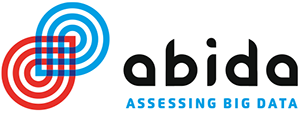
The interdisciplinary project ABIDA (Assessing Big Data), funded by the Federal Ministry of Education and Research, explores social opportunities and risks of the generation, linking and analysis of huge amounts of data and develops options for political action, research and development.
ABIDA approaches the topic of Big Data from a fundamentally interdisciplinary perspective. Sociologists, philosophers, economists, legal and political scientists work hand in hand on this. The project aims to jointly gather existing knowledge about dealing with big data, generate new knowledge, deepen the knowledge, and make it accessible to the widest possible public. The scientists will examine the societal impacts associated with Big Data by using the methods of technology assessment oriented to dialogue and participation.
For more info see http://abida.de/en
ANASTACIA - Advanced Networked Agents for Security and Trust Assessment in CPS / IOT Architectures
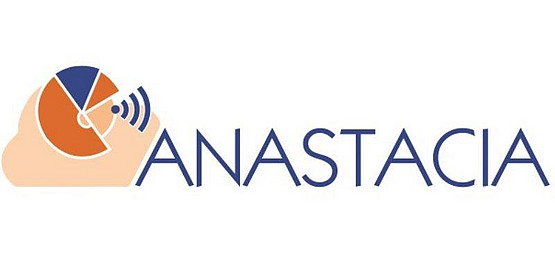
The heterogeneous, distributed, and dynamically evolving nature of Cyber Physical Systems (CPS) based on Internet of Things (IoT) and virtualised cloud architectures introduces new and unexpected risks that cannot be solved by current state-of-the-art security solutions.
ANASTACIA will thus develop a trustworthy-by-design security framework that will address all the phases of the ICT Systems Development Lifecycle (SDL) and will be able to take autonomous decisions through the use of new networking technologies such as Software Defined Networking (SDN) and Network Function Virtualisation (NFV) and intelligent and dynamic security enforcement and monitoring methodologies and tools.
For more info see http://anastacia-h2020.eu/
CANVAS - Constructing an Alliance for Value-driven Cybersecurity
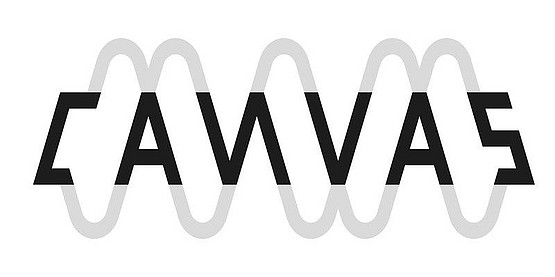
The growing complexity of the digital ecosystem in combination with increasing global risks entail the danger that enforcing cybersecurity may bypass other fundamental values like equality, fairness or privacy, whereas downplaying cybersecurity would undermine citizens’ trust and confidence in the digital infrastructure. For tackling this challenge, the European Commission has chosen the CANVAS Consortium – Constructing an Alliance for Value-driven Cybersecurity – to unify technology developers with legal and ethical scholar and social scientists to approach the challenge how cybersecurity can be aligned with European values and fundamental rights. Within three years, CANVAS aims to bring together stakeholders from key areas of the European Digital Agenda – the health system, business/finance, and law enforcement/national security – for discussing challenges and solutions when aligning cybersecurity with ethics. A special focus of CANVAS is on raising awareness on the ethics of cybersecurity through teaching in academia and industry.
For more info see canvas-project.eu
CREDENTIAL - Secure Cloud Identity Wallet
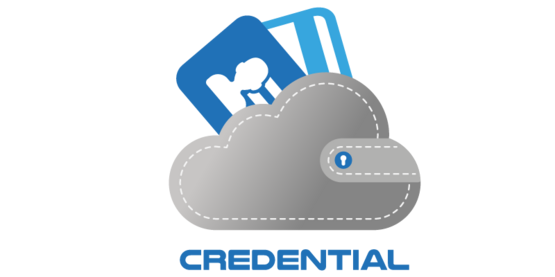
The main ambition of the Horizon 2020 project CREDENTIAL is to realize an end-to-end secure and privacy-preserving platform for managing and storing users' digital identity information, ranging from authentication credentials over medical reports to tax data or similar. Using strong cryptographic mechanisms, high authenticity guarantees shall be made, while at the same time users should be able to determine which of their data goes where on a very fine granular level.
For more info see credential.eu
EU-SEC - The European Security Certification Framework
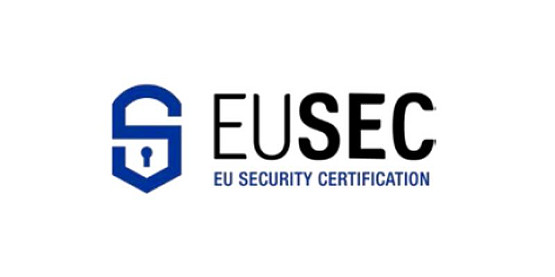
In recent years the ICT market has evolved toward a cloud-based approach. This shift together with the rapidly changing legal and regulatory landscape has heavily impacted security assurance, governance and compliance. The information security market players have tried to provide suitable solutions to cope with issues such as
1. lack of means to provide higher level of assurance (e.g continuous monitoring and auditing),
2. privacy not adequately taken into account,
3. limited transparency and
4. lack of means to streamline risk management and compliance.
In the certification space this has resulted in the creation of several schemas creating an additional problem, i.e. the proliferation of certification scheme. The project EU-SEC will improve the effectiveness and efficiency of existing approaches for assurance and compliance. The EU-SEC aims to create a framework under which existing, certification and assurance approaches can co-exist.
For more info see www.sec-cert.eu
FutureTrust
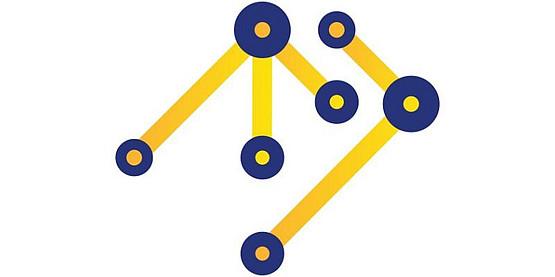
FutureTrust project will address the need for globally interoperable solutions with respect to trust and trustworthiness, actively support the standardisation process, and provide Open Source software components and trustworthy services which will ease the use of eID and electronic signature technology in real world applications.
In particular the FutureTrust project will extend the existing European Trusted List (TL) infrastructure towards a “Global Trust List”, develop a comprehensive Open Source Validation Service as well as a scalable Preservation Service for electronic signatures and seals and will provide components for the eID-based application for qualified certificates across borders, and for the trustworthy creation of remote signatures and seals in a mobile environment.
For more information visit http://futuretrust.eu/
LIGHTest
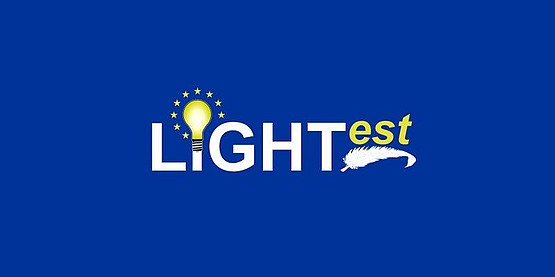
The objective of the LIGHTest project is to create a global cross-domain trust infrastructure that renders it transparent and easy for verifiers to evaluate electronic transactions. By querying different trust authorities world-wide and combining trust aspects related to identity, business, reputation etc., it will become possible to conduct domain-specific trust decisions. These objectives will only be realised through the use of the existing domain name system.
For more info see www.lightest-community.org
MMAssist II - Assistenzsysteme in der Produktion im Kontext Mensch – Maschine Kooperation

The goal of MMAssist II is a fundamental research and characterization of assistance in a production context. Based on this, optimized assistance systems for future working places focused on the human worker („Human-Centered Workplace“) will be developed, implemented and evaluated in an industrial environment. Basis for the implementation are so called „Assistenz Units“ – which are modular components for assistance systems. Assistance Units are defined in a way that they can be applied to different application con-texts. The partners will implement a software framework with which Assistance Units can be dynamically configured to act as assistance system for a given application.
For more info see www.mmassist.at
SCOTT - Secure Connected Trustable Things

Creating trust in wireless solutions and increasing their social acceptance are major challenges to achieve the full potential of the Internet of Things (IoT). Therefore, SCOTT – Secure COnnected Trustable Things, a pan-European effort with 57 key partners from 12 countries (EU and Brazil), will provide comprehensive cost-efficient solutions of wireless, end-to-end secure, trustworthy connectivity and interoperability (Technology Readiness Level 6-7) to bridge the last mile to market implementation.
SCOTT will not just deal with ‚things that are connected‘, but with ‚trustable things that securely communicate‘, i.e. things interconnected by dependable wireless technology and valuing the end-users‘ privacy rules.
For more info see scottproject.eu
RESCUE: Researching Social Media and Collaborative Software Use in Emergency Situations
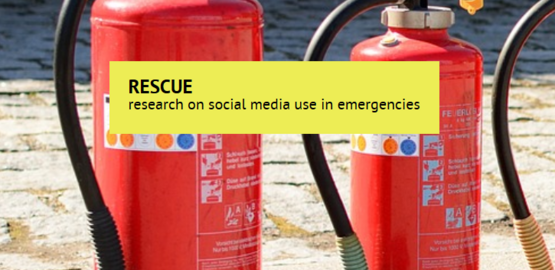
RESCUE is a research project funded by the SAMRISK II (Social security) program of The Research Council of Norway. The RESCUE project developed new knowledge of social media emergency communication and developed recommendations for using social media and methods for evaluating social media content during emergencies.
The focus was on how social media has been used by key crisis communicators (such as authorities, rescue organizations and journalists) as well as by the public during emergency situations. In this regard, the RESCUE project identified strengths and weaknesses in usage patterns and the assessment methods that have been applied in three different emergency cases.
For more info see blogg.hioa.no/rescue
TITANIUM
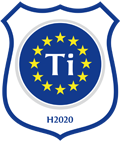
TITANIUM will research, develop, and validate novel data-driven techniques and solutions designed to support Law Enforcement Agencies (LEAs) charged with investigating criminal or terrorist activities involving virtual currencies and/or underground markets in the darknet.
The expected result of TITANIUM is a set of services and forensic tools, which operate within a privacy and data protection environment that is configurable to local legal requirements, and can be used by investigators for:
Monitoring trends in virtual currency and darknet market ecosystems
Analyzing transactions across different virtual currency ledgers
Generating court-proof evidence reports based on reproducible and legally compliant analytical procedures
For more info see www.titanium-project.eu
TRUESSEC.eu
TRUESSEC.EU is a Coordination and Support Action investigating the role of certification and labelling schemes in measuring the trustworthiness properties of ICT products. Within TRUESSEC.EU, trustworthiness metrics are investigated and defined from a multidisciplinary legal, ethical, sociological, technical and business perspective. Emphasis is being devoted to human rights and explicit individuals desires, when metrics to measure trust for ICT services are defined and assessed.
With this aim, TRUESSEC.EU works and results are sustained by three pillars:
- A StakeHolders' Online Platform (SHOP), where associated cluster projects and stakeholders from industry, academia, governments and civil society will gather, participate in debates, get informed, and provide their opinions and feedback on the topics of the project.
- A series of Support Analysis and Studies (SUPPA) from multidisciplinary perspectives on issues of trustworthiness certification and assurance, to study the situation of trust-enhancing labels, barriers/incentives to industry adoption and consumer acceptance.
- A set of Recommendations on European Trust-Enhancing Labels (ETEL) dealing with: methodological aspects of certification and assurance, a catalogue of criteria for labels and certifications, and regulatory aspects to foster their adoption, plus a strategic agenda. These recommendations will reflect the conclusions obtained from the support analysis and from the stakeholders engagement.
organisatorische Anfragen:
Hristina Veljanova
Institut für Philosophie
Heinrichstraße 26/II
8010 Graz
Anfragen zu Programm und Workshop:
Stefan Reichmann
Centrum für Sozialforschung
Universitätsstraße 15/G4
8010 Graz
Anna Haselbacher
Institut für Rechtswissenschaftliche Grundlagen

